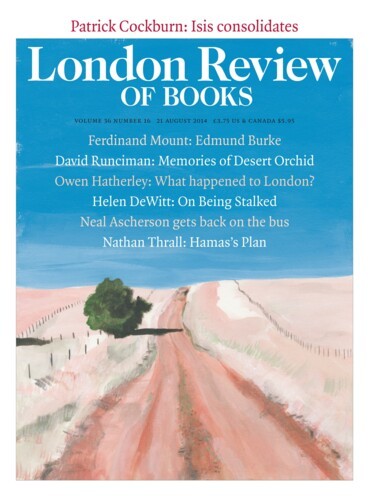A Pound Here, a Pound There
David Runciman, 21 August 2014
In 1989, between finishing my undergraduate degree and starting on a PhD, I worked in a betting shop in Tufnell Park. It was a branch of Coral, then one of the ‘Big Three’ bookmaking firms that dominated the market (the other two were Ladbrokes and William Hill). I was a cashier, which meant I took in the bets, made a record of them and paid out to the lucky winners.


